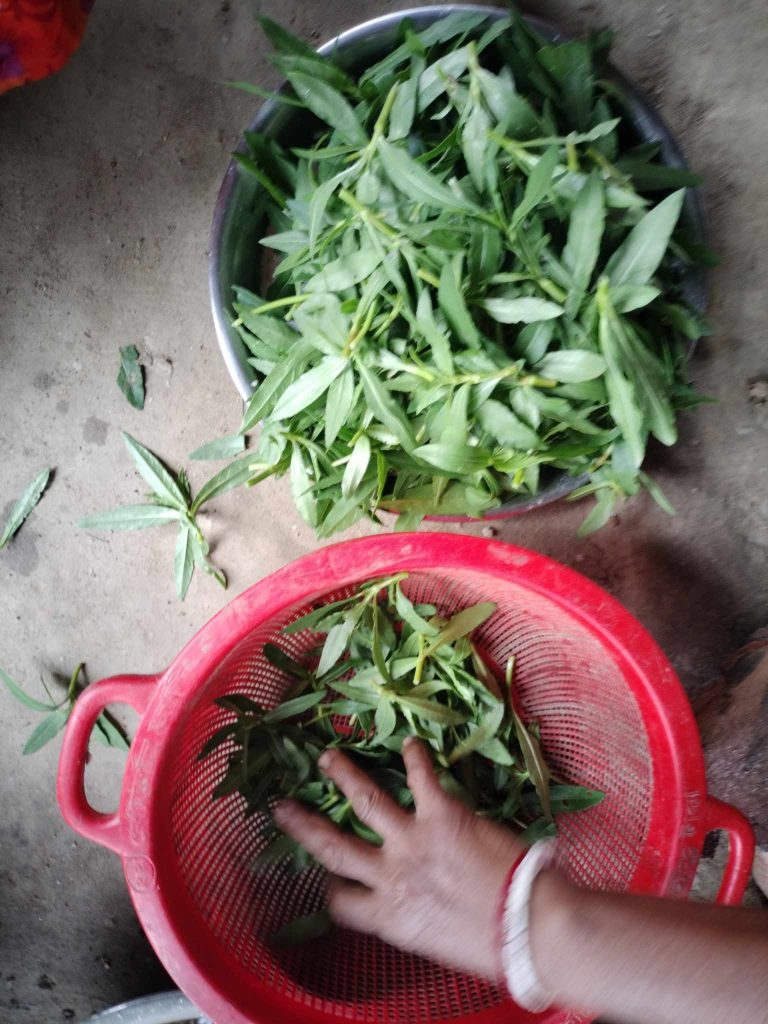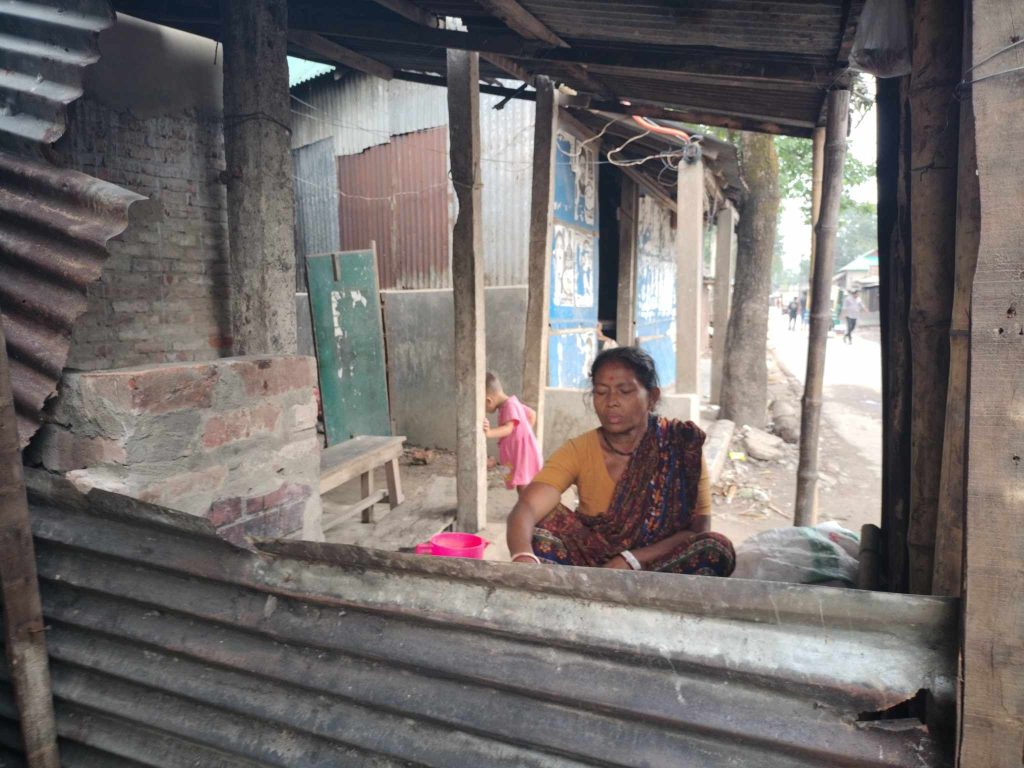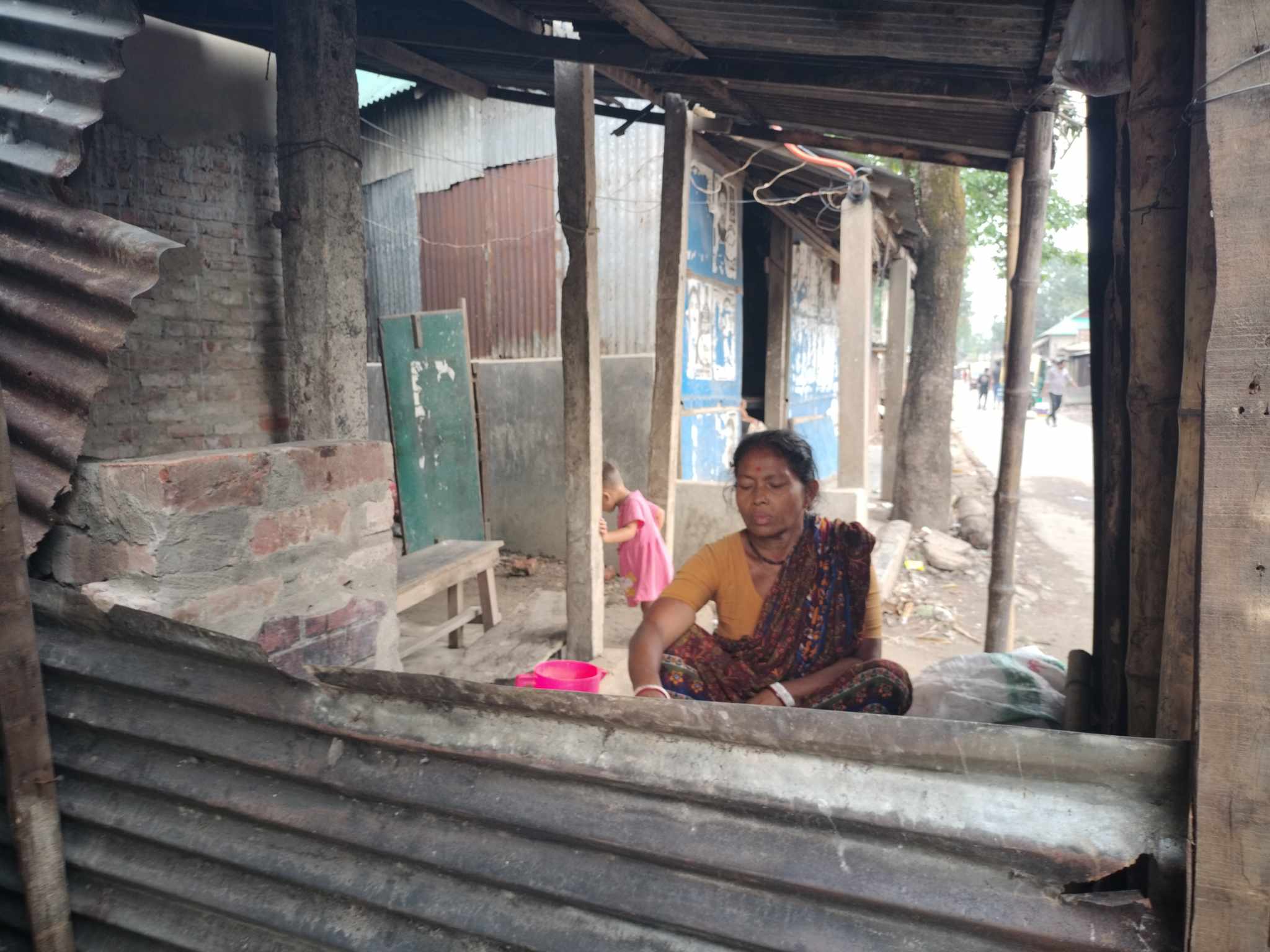By Tasmiya Tahura, from Netrakona
For Chandani Rishi, every day is a battle, a story of strength, resilience, and quiet perseverance. At 45, she carries the full weight of her household on her shoulders in the Rishipara neighborhood of Malni, a ward under Netrokona Municipality. With a chronically ill husband, Sukumar Rishi, and five children (two daughters and three sons) Chandani is the sole provider for her family.

For nearly a decade, Chandani has been selling traditional Bangladeshi rice cakes chanapora, chitai, and bhapa pitha every morning from 8 to 10 a.m. across various corners of the town. Her daily earnings range between BDT 300 to 400, barely enough to keep food on the table.
Through her involvement in discussions arranged by BARCIK, Chandani has become aware of the importance of uncultivated foods, climate-conscious cooking, and environement-friendly oven.
Once, she dreamed of educating her children and seeing them grow as respectable individuals. But poverty turned education into a luxury, an unattainable hope in a “hand-to-mouth” existence.
Still, Chandani didn’t give up. She found strength in the increasing urban demand for traditional foods. Her kitchen, powered by a clay stove, is a symbol of her identity and sustainability. While gas stoves are common now, Chandani relies on dried wood, leaves, and crop residue to cook not just to save money, but because she believes food cooked this way carries a unique earthy aroma and flavor that her children call “the taste of home.”
Beyond pitha, her kitchen includes wild, nutrient-rich greens like helencha, gima, and kolmi shaak (spinaches) traditionally foraged from wetlands and now gaining popularity among health-conscious urbanites. She gathers these herself, adding both flavor and nutrition to her family’s meals.
“You can’t just earn, you have to be mindful of what you eat too,” says Chandani. “I collect helencha from the wetlands. It’s good for health.”

Chandani’s story isn’t just about one woman’s struggle. It reflects a broader vision for a society that values safe food, conscious living, and the quiet dignity of labor.
Every day, as she lights the fire under her pitha pot, Chandani is not merely cooking, she is nurturing her family’s hopes, courage, and will to survive. Her journey reminds us that even with limited means, it is possible to dream big and overcome hardship.
A little support, a touch of empathy that is all it might take to brighten the lives of women like Chandani Rishi. One helping hand could bring smiles to an entire family. While their stories of struggle may quiet down, it may mark the beginning of a new chapter, one of dignity, hope, and strength.

